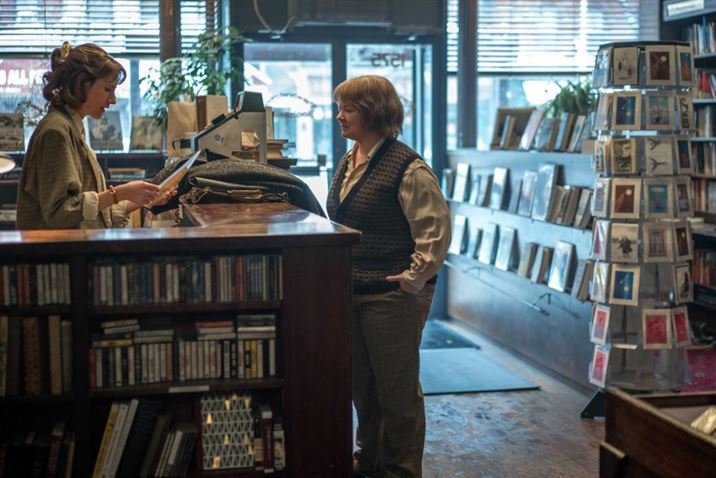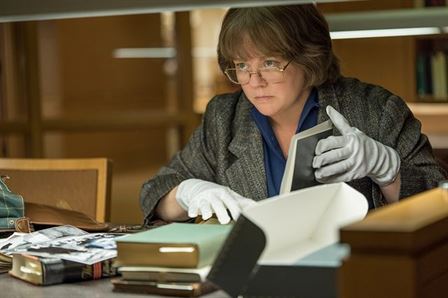Just in time for Christmas, Melissa McCarthy serves up a modern-day female version of the Grinch.
“Can You Ever Forgive Me?” is based on Lee Israel’s real-life memoir of the same name and depicts Israel as a washed-up writer and cat lover who gets fired from her editing job and refuses to comply with her agent’s demand of keeping up with the times.
Her refusal to write anything besides biographical memoirs of artists, like Fanny Brice and Dorothy Parker, are her way of dodging any criticisms that could potentially stem from writing about her own life.
“Can You Ever Forgive Me?” is Israel’s compelling truth regarding her struggles with opening up to others and having the courage to take a literary risk.

Richard E. Grant costars alongside Melissa McCarthy in “Can You Ever Forgive Me?” Photo courtesy of Twentieth Century Fox
The plot focuses on her shift from spending nights alone with her cat and watching classic films, to performing criminal acts of embellishing personal letters from esteemed artists and passing them off as originals.
Her thirst for whiskey on the rocks causes her to develop a relationship with ex-writer, Jack Hock, who miraculously lives off of cocaine sales and batting his eyelashes for a free cinnamon roll. Israel and Hock’s friendship drives the action of the film while delightfully adding an interesting dynamic where Israel is the sly supervillain and Hock is her sloppy yet loyal sidekick.
These complex, troubled and morally inept characters keep audiences hooked. Israel’s relentless efforts to get away with these massive literary scams give her an ephemeral sense of purpose that all viewers will find relatable.
Struggling writer or not, everyone has dealt with the infamous human condition of working hard toward trying to feel a sense of belonging or cheating one’s way toward getting a taste of that classic American dream.
Although “Can You Ever Forgive Me?” fails to offer any element of surprise in terms of plot, the screenplay — written by Nicole Holofcener and Jeff Whitty — successfully achieves that empathetic audience response that all filmmakers aim for when retelling a true story.
Brandon Trost, the film’s cinematographer, uses a warm lens to capture the colorful yet isolated atmosphere of early ’90s New York City in the midst of the AIDS crisis. The jazzy city vibe, aided by Nate Heller’s score, sets the lighthearted yet suspenseful tone that brings the story to life.
Director Marielle Heller finally brought out the artistic versatility that McCarthy had yet to show the world. McCarthy delivers a beautifully authentic performance by tackling the challenge of portraying Israel’s crude nature while also making the audience feel for her emotionally.

In “Can You Ever Forgive Me?,” Lee Israel is a writer who turns to forging letters by literary figures. Photo courtesy of Twentieth Century Fox
McCarthy’s killer closing monologue, where she admits to being nothing less than a coward, deserves extended praise. Her ability to tug at a viewer’s heartstrings with a single expression makes it difficult to believe that she is typically known for her expertise at using fart jokes to make people laugh.
She adds a likability to Israel that many actors would have failed to achieve. McCarthy carries the film, and without her, “Can You Ever Forgive Me?” would have fallen flat.
Whether or not a viewer considers themselves to be a cat person or bookworm like Israel, they should go see “Can You Ever Forgive Me?” The film will not only take one back to a tragically important time in history but also allow those who are feeling lonely or unfulfilled to connect with Israel and her unforged truth.



